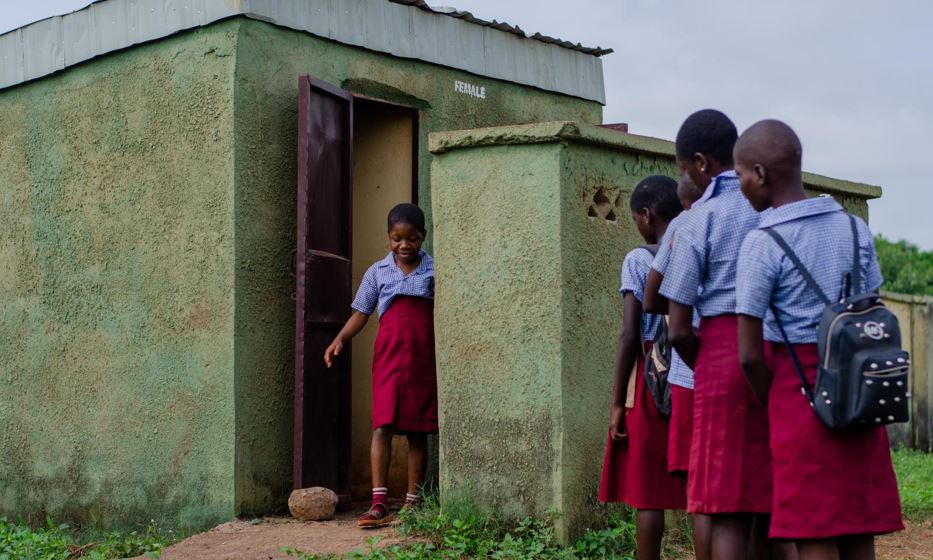Schools in Nigeria, especially pre-tertiary schools, are not designed for girls- How they operate, the building and even the training of teachers do not consider the peculiarities of girls, and there is enough data that backs this.
Data from the United Nations Children’s Fund or UNICEF reveals that 90% of Nigerian schools lack basic hygiene services.
This means that a significant number of the over 3.5 million girls in pre-tertiary schools in Nigeria have no access to facilities and support for them to manage their period effectively. These girls have no access to clean and private toilets with facilities for the disposal of sanitary products.
In most of these schools, there is no provision of sanitary pads or tampons, and there is a lack of education, of teachers and students alike, on period practices.
Girls also lack access to handwashing equipment to prevent the spread of germs and infections. The school does not have running taps with soap or an alcohol-based hand sanitiser for students to clean their hands.
Why for girls?
Giving girls access to clean menstrual hygiene facilities is not an issue of preference but equality.
For girls, period management is not a matter of choice but a part of their existence.
While menstrual cycles vary, on average, there are 13 per year. And since girls of school age spend most of their day time in school, they usually would experience their flow in school.
Reports say about 1 million girls miss school daily due to a lack of access to menstrual hygiene facilities. Reasonsfor skipping school include a lack of sanitary towels, fear of stains, lack of bins to dispose of sanitary towels, and lack of gender-sensitive toilets, among others.
According to reports by UNICEF, one in 10 African girls miss school due to their periods. This is akin to about 20% of a school year.
So, schools with poor hygiene facilities contribute to low female attendance and impact their learning abilities.
And for the girls who don’t miss out on school during their periods, they are forced to endure discomfort in class. Even when soaked, these girls will stay in that discomfort, affecting their participation in class and school events.
Even schools with toilets need to do better. In 2015, a UNICEF research team visited some schools nationwide, and their findings were appalling. Most of the schools visited had no toilets, and those with toilets did not properly maintain them. A school visited had ten toilets for 600 students. Even worse, wastebaskets weren’t placed in the toilets, making it difficult for females to change with safety and dignity.
Also, teachers in Nigerian schools are not equipped with knowledge about menstrual hygiene management or MHM and are, therefore, not sensitive to the plights and needs of their female students.
It is also important to note that the absence of a hygiene facility in pre-tertiary schools threatens the girls’ health, safety and education.
Need for better
While the current lack of access to good sanitary facilities and menstrual hygiene products proves that schools in Nigeria are not female-friendly, policymakers need to do better and consider menstrual hygiene in the design and construction of schools.
There should be a policy for properly disposing of waste, which is crucial for maintaining a clean and healthy environment.
According to data from UNICEF, 86% of schools in Nigeria lack access to clean water, which is the foundation of menstrual hygiene management.
Schools should also provide comprehensive and age-appropriate education on puberty, menstrual hygiene, and general personal hygiene practices; this includes teaching girls about proper handwashing, bathing, dental care, and sanitary products.
Girls should have access to private and safe spaces for changing sanitary products and facilities that promote dignity and comfort during menstruation; this may involve providing separate changing rooms or stalls within the toilets.
Schools should ensure that necessary hygiene supplies are readily available to girls. This may include providing soap, toilet paper, sanitary pads, other menstrual products, and waste disposal bins in toilets.
Schools in Nigeria, particularly pre-tertiary institutions, are inadequately designed for girls, lacking the necessary hygienic facilities. UNICEF data reveals that 90% of Nigerian schools lack basic hygiene services, impacting over 3.5 million girls who are unable to manage their periods effectively due to the absence of clean and private toilets, sanitary products, and proper disposal facilities. This lack results in around 1 million girls missing school daily and significantly affects their participation and learning when they do attend.
Many schools also lack proper handwashing facilities, and teachers are often not trained in menstrual hygiene management, exacerbating the issue. Poor hygiene facilities contribute to low female attendance, discomfort, and potential health risks.
To address these challenges, policymakers need to ensure schools have access to clean water, proper waste disposal, and private and safe spaces for changing sanitary products. Educational programs on puberty, menstrual hygiene, and general personal hygiene practices should be provided, along with the necessary hygiene supplies.






